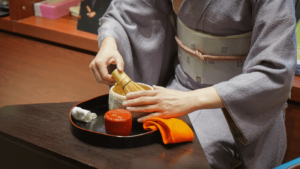
Job hunting activities are called “shuukatsu" in Japan and start during the fourth year of University when students seek valuable job interview tips.
Considering the need for intense preparation for job interviews, understanding the “Shuukatsu” process is deeply rooted in Japanese culture.
- Should you attend seminars with “secrets” on how to pass a job interview?
- Should you strictly follow manuals or rather choose to be yourself during the interview?
- Are there actually secrets on how to pass a job interview?
Let’s find out the answers together by reading the article below:
Job hunting “Shuukatsu”: How does it work?

Since Keidanren (経団連 / Japan Business Federation) – a federation of 1,300 leading Japanese companies – changed the start of the job hunting season to the fourth year of university, students have begun visiting companies in April.
Job hunting activities are called “shuukatsu - 就活,” and most students visit companies wearing what’s called a “recruit suit” in black or grey.
Interview strategy seminars are frequently held, and many manuals about interview strategy are published.
Up close with Yuma and her story of “Shuukatsu”!

The other day, I talked to Yuma (not her real name), a neighbor and female university student who has attended a seminar on job interview strategies.
She said, “It was very helpful to hear about appropriate dress code and makeup for the day, how to reply to questions that often come up, and how to enhance one’s appeal.”
I teased her, saying, “Well, you’ll be able to enter your dream company then,” and she nodded confidently.
A while after this, I had the opportunity to talk with the head of personnel for a leading company.
“Since they study interview strategy through seminars and manuals, isn’t it difficult to form a real opinion?” I asked him.
He replied, smiling: “That’s right. It’s my job to work out the applicant’s true identity, but I have often been disappointed when I see them in person, especially with women.”
Should you alter your application image?
Nowadays, you can easily modify a picture, so many applicants look different from their resume picture.
Furthermore, they emphasize how unique they are, but they all talk just as the manual has instructed them to.
“You are just like a detective examining a suspect,” I joked.
Then he said, “They fail to notice that we have taken countermeasures by secretly attending these seminars and reading the manuals.”
After that, I had the opportunity to talk to Yuma again.
When I told her about the manager’s story, she said, producing a leaflet from her bag: “It’ll be fine, as I’ll be attending this seminar.”
The following was written on it: “In-depth seminar on how to ace job interviews given by a former job interviewer.”
Even if this seminar got her a job, I worried whether she had the gumption necessary for work.
Does your country have a related activity such as “Shuukatsu”? What do you think? Will Yuma get her dream job? Share it with us!
Check out our content partnership, Hiragana Times, the English-Japanese magazine!
WE, teachers, use Hiragana Times magazine to give our students a full experience of learning the Japanese language and culture simultaneously.
(From Hiragana Times magazine)
We do not stop at only helping you ace your job interview; we will also support your journey of learning the Japanese language with our personalized programs.


